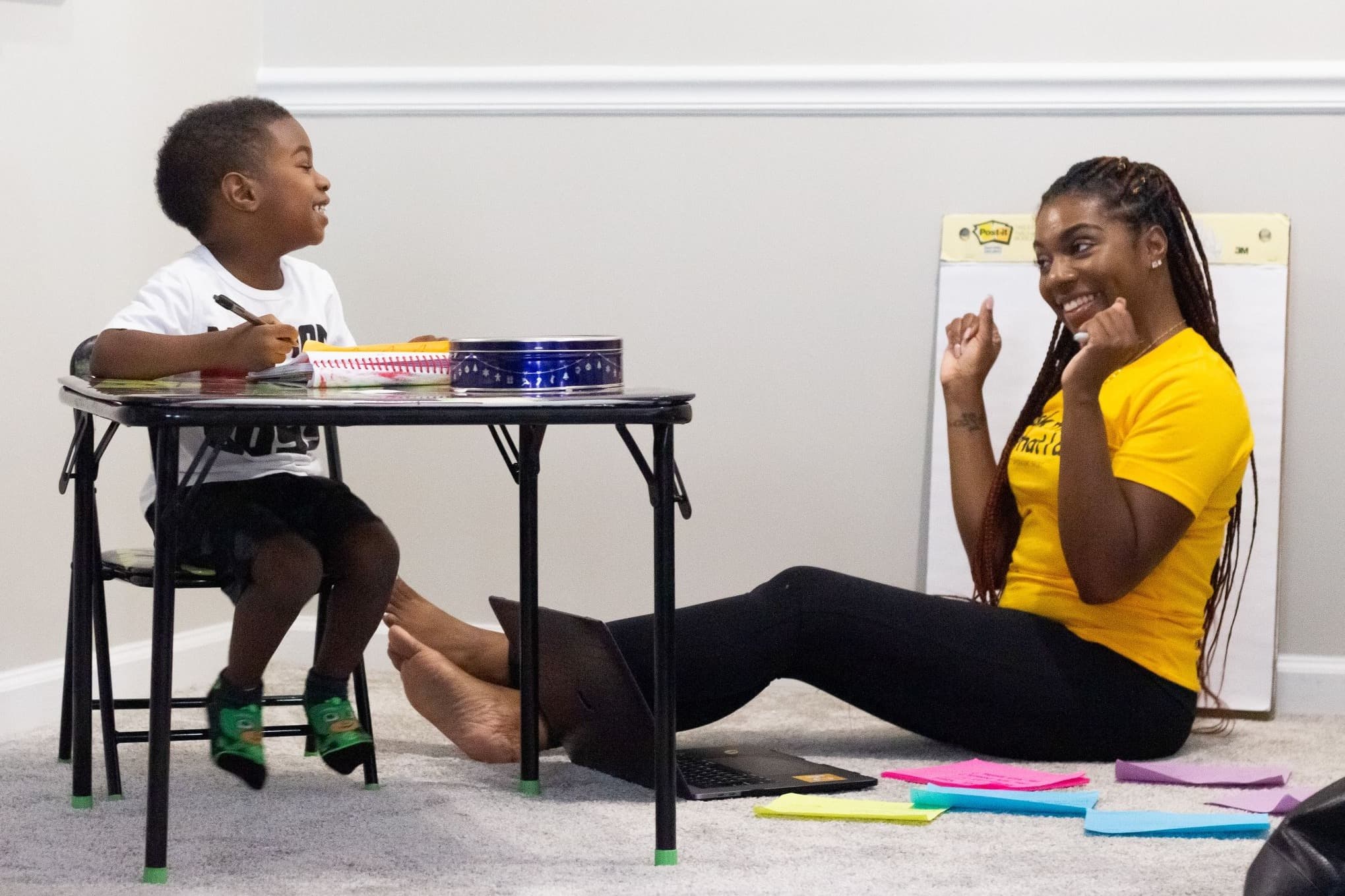Is telling your kids to “be nice” enough? Here’s how to teach them kindness

By Brightline team, Feb 17, 2024
Is telling your kids to “be nice” enough? Here’s how to teach them kindness.
Chances are, you’ve heard yourself say “Hey, be nice” to your child more times than you can count. It’s a common reminder (or reprimand) for kids of all ages. While “being nice" and "being kind" may seem like the same thing, there is a subtle — but profound — difference between them.
Let's explore why raising kids who are kind, as opposed to nice, is so important.
Nice vs. Kind: What’s the Difference?
At first glance, being nice and being kind may seem the same. After all, both involve being polite and friendly.
Think of it this way — being nice is usually something said and being kind is usually something done.
For instance, let’s say your 3rd grader has a classmate who doesn’t feel well at lunchtime. A nice thing would be to say “I’m sorry you’re sick.” A kind thing would be to say “I’m sorry you’re sick. I don’t like to be alone when my head hurts…can I sit with you until you feel better?”
Or, what if your older child has a class with a kid whose backpack was stolen. It would be nice of them to say “Sorry, that’s a bummer with finals in two weeks.” A kind gesture might be for them to offer up a study session or to text them a picture of the study guide so the classmate can still prep for the test.
The Good and the Bad Sides of Being Nice
For a child, being "nice" can feel like an obligation; something they are taught they should be even when they don’t really want to. Being nice is expected and a way to get approval. And sometimes it’s just the polite thing to do (which is okay, too).
But what does “be nice” really mean to a child? If you can be more specific with them, you’re more likely to see the behavior you are trying to encourage. For example, instead of saying “Be nice to your friends” you could say “Please remember to share; you can take turns so everyone gets to play.”
There are a couple of things to watch out for, though. Always defaulting to being nice can make a child feel like they have to hide how they really feel. Yes, it can help avoid conflict and make them easy to get along with. But when trying to fit in takes priority over being honest about your own feelings, it can start to get complicated. Talking through positive ways to be nice while also being true to yourself can help.
Secondly, being overly nice can sometimes encourage negative behavior in others. For some kids, never being told they’re wrong can lead them to believe they’re always right (even when they aren’t).
The Power of Being Kind
Being kind is all about a child building their own capacity for empathy. Being kind is authentic. It’s rooted in feeling genuine concern for others — the trick is developing that skill in your kids.
How? Just being aware of someone else’s struggle comes first. Then, teaching your child to take a few seconds to think “How would I feel if that happened to me? What could someone do that might help me feel better?” can turn a nice instinct into a kind one.
An act of kindness, no matter how small, can have a positive impact, even if it’s only for a moment. It can also have a ripple effect. Kids who show kindness make other people feel good — and those people are more likely to be kind to others.
Strengthening the Kindness Muscles
Here are a few ways you can help your kids understand what it means to show kindness, and how to encourage them to be kind to themselves, their friends, and their families:
Practice empathy: Take a few seconds to put yourself in someone else’s shoes and try to understand how they feel and what might help.
Set boundaries: It's okay to speak up whenever you feel unsafe or uncomfortable.
Give and receive: If someone is kind to you, be kind to someone else. You’re helping create a more compassionate world.
Show them what you want to see: Leading by example is one of the best ways to teach kids. If you regularly use kind language and show kind behaviors in front of your kids, they will watch and learn how to do it themselves.
To learn more about how to talk to your kids about the importance of kindness and how it’s different from being nice, get in touch. Brightline coaches and therapists are always here to help.